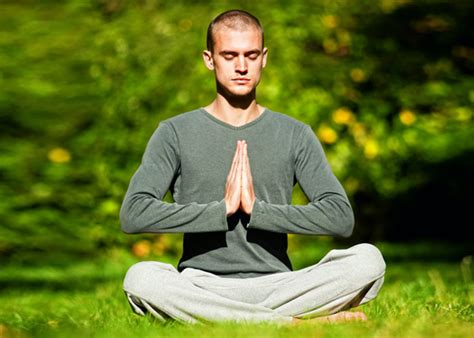How Yoga Can Help Children Improve Focus: A Comprehensive Exploration
In today’s fast-paced world, children face a constant barrage of distractions, from technology to academic pressures, making it increasingly difficult to maintain focus. Parents and educators are on the lookout for effective strategies to improve children’s concentration, with yoga emerging as a promising solution. This article examines whether yoga can help children enhance their focus, offering a multi-faceted exploration based on scientific research, practical applications, and expert commentary. We delve into the key concepts, historical context, current trends, and ethical considerations to provide a holistic view of this growing phenomenon.
Key Concepts
Understanding how yoga could improve children’s focus requires breaking down the core concepts:
- Yoga: A physical, mental, and spiritual practice that originated in ancient India. It typically includes postures (asanas), breathing techniques (pranayama), and meditation.
- Focus: The ability to concentrate on a particular task or object for an extended period without distraction.
- Mindfulness: A mental state achieved by focusing awareness on the present moment, often used in conjunction with yoga to enhance cognitive control.
- Neuroplasticity: The brain’s ability to reorganize itself by forming new neural connections, which can be enhanced by activities such as yoga and meditation.
- Attention Deficit Hyperactivity Disorder (ADHD): A common behavioral disorder that affects focus, self-control, and other important cognitive functions, and which yoga is sometimes used to manage.
Historical Context
The relationship between yoga and focus has deep historical roots. Yoga originated over 5,000 years ago in India, with a strong focus on mental clarity and concentration. The ancient practice was designed to help practitioners achieve a state of deep focus, often to aid in meditation. This was seen as a path to spiritual enlightenment. In the modern era, the emphasis has shifted towards using yoga for physical fitness, mental health, and cognitive enhancement.
Since the 1960s, as yoga entered mainstream Western culture, researchers began to study its effects on mental well-being and cognitive performance. By the 21st century, studies investigating the potential benefits of yoga for children, particularly in areas such as focus, attention, and emotional regulation, started to emerge.
Current State Analysis
Today, there is growing evidence to suggest that yoga can improve focus and attention in children. A 2016 study published in the journal Mindfulness found that children who practiced yoga for eight weeks showed significant improvements in attention, self-regulation, and working memory compared to a control group. Similarly, a 2018 review of multiple studies on yoga and children’s mental health concluded that yoga helps reduce hyperactivity and inattention in children with ADHD.
Many schools have begun to integrate yoga into their curriculum, hoping to address issues like declining attention spans and rising stress levels among students. Programs such as Yoga Ed and Little Flower Yoga aim to teach children mindfulness and focus techniques that can be applied both in and outside the classroom.
Practical Applications
Yoga can be a practical tool for helping children improve focus in the following ways:
- Structured Yoga Sessions: Schools and parents can introduce regular yoga classes, focusing on postures and breathing exercises that promote mental clarity.
- Mindfulness-Based Activities: Activities like guided meditation and mindful breathing help children control their thoughts and emotions, allowing them to stay present and focused.
- Yoga as a Break from Technology: In an age where screen time is at an all-time high, yoga offers a refreshing break that encourages mental rest and rejuvenation.
Example Yoga Techniques for Focus
| Technique | Description | Benefits |
|---|---|---|
| Tree Pose (Vrikshasana) | Standing on one leg, with the other foot placed on the inner thigh, hands together above the head. | Improves balance, concentration, and mind-body connection. |
| Bumblebee Breath (Bhramari) | Inhale deeply and exhale while making a humming sound. | Calms the mind, reduces anxiety, and enhances focus. |
| Lotus Pose (Padmasana) | Seated with legs crossed and hands resting on knees. | Encourages mindfulness and helps in meditative focus. |
Case Studies
Several case studies highlight the effectiveness of yoga in improving focus among children:
Case Study 1: Integrating Yoga in Schools
In a pilot program in New York City, yoga classes were introduced to students in a high-stress middle school environment. After six months, teachers reported noticeable improvements in students’ ability to stay on task during lessons. Focus-based activities like balancing poses and breathwork helped students manage classroom distractions.
Case Study 2: ADHD and Yoga Intervention
A clinical study involving children with ADHD found that those who practiced yoga for three months showed a 25% improvement in attention span and reduced hyperactivity. Yoga provided these children with a non-pharmaceutical option for managing symptoms, helping them focus better during academic tasks.
Stakeholder Analysis
Different groups of stakeholders have a vested interest in how yoga is implemented as a tool to improve focus in children. The main stakeholders include:
- Parents: Parents seek natural, non-invasive ways to improve their children’s academic performance and behavior.
- Educators: Teachers benefit from calmer, more focused classrooms where students are better equipped to concentrate on learning.
- Healthcare Providers: Pediatricians and psychologists explore yoga as a complementary treatment for children with behavioral and attention disorders.
- Children: Children themselves benefit from improved focus, emotional regulation, and reduced anxiety, leading to enhanced well-being.
Implementation Guidelines
For yoga to be effectively implemented as a focus-enhancing tool for children, certain guidelines should be followed:
- Start with Simple Poses: Focus on poses and exercises that are easy to learn and repeat, avoiding complex postures that may frustrate young practitioners.
- Incorporate Breathing Exercises: Teach children to control their breath, as this can have a direct impact on their ability to focus and calm their mind.
- Make Yoga Fun: Keep sessions light-hearted and playful to maintain children’s engagement and interest.
- Consistency is Key: Regular practice is essential for long-term benefits. Schedule yoga sessions consistently, whether in schools or at home.
Ethical Considerations
While yoga is widely considered beneficial, there are ethical concerns to be mindful of:
- Cultural Appropriation: Yoga has deep spiritual and cultural significance in India. It’s important to teach yoga in a respectful manner that acknowledges its origins.
- Inclusion: Programs should ensure that yoga is accessible to all children, regardless of physical ability, socio-economic status, or cultural background.
- Consent: Children should not be forced into yoga practices. Participation should be voluntary, with an emphasis on individual comfort and well-being.
Limitations and Future Research
Although yoga shows great promise in helping children improve their focus, there are limitations to its application:
- Lack of Long-Term Data: Most studies on yoga and focus in children are short-term. Longitudinal studies are needed to determine the lasting impact of yoga on cognitive function.
- Standardization: There is no universal standard for what constitutes a “yoga program” for children, making it difficult to compare results across different studies.
- Accessibility: While yoga is gaining popularity, it may not be accessible to all children due to economic or geographic barriers.
Future research should focus on the following areas:
- Investigating the specific elements of yoga that are most effective for enhancing focus (e.g., breathwork vs. postures).
- Exploring the long-term effects of yoga on children’s cognitive development and academic performance.
- Studying the impact of yoga on children with learning disabilities and developmental disorders beyond ADHD.
Expert Commentary
Experts in child psychology, education, and physical health agree that yoga offers a unique blend of physical activity and mindfulness that can positively influence children’s ability to focus. Dr. Jane Matthews, a child psychologist, highlights that “yoga not only helps children improve their attention span, but also equips them with emotional regulation skills, making them more resilient in stressful situations.”
Meanwhile, educators like Mark Stevens, a middle school teacher who has integrated yoga into his curriculum, have observed firsthand how students become more engaged and focused after practicing yoga regularly. “It’s remarkable how just five minutes of breathwork can make such a difference in their ability to concentrate on lessons,” he notes.








